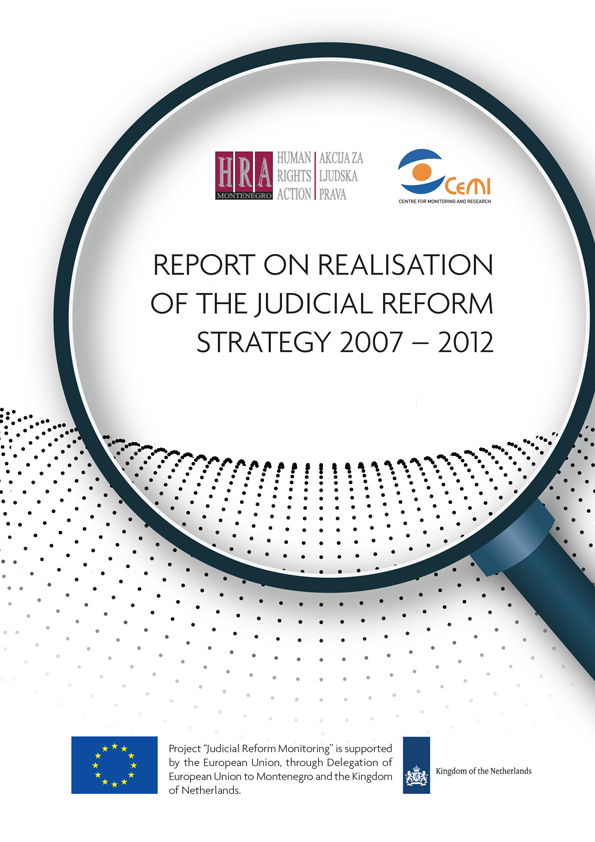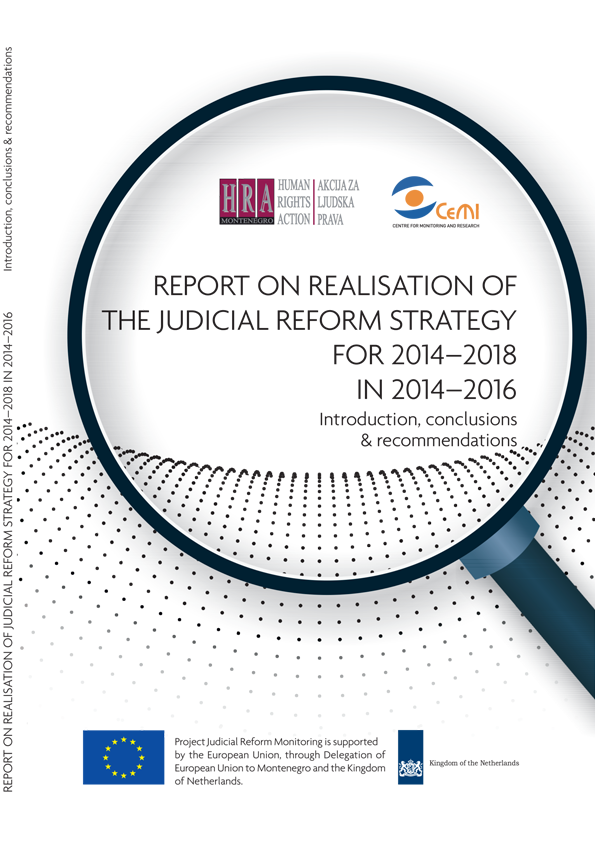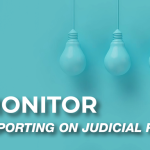
REPORT ON REALISATION OF THE JUDICIAL REFORM STRATEGY 2007 – 2012
10/04/2017
REPORT ON REALISATION OF THE JUDICIAL REFORM STRATEGY FOR 2014–2018 IN 2014–2016
15/04/201713/4/2017 MONTENEGRO WITHOUT REPORT ON TIME-BARRED CRIMINAL CASES
NGO Human Rights Action (HRA) and the Center for Research and Monitoring (CeMI) note that Annual report on the work of the Judicial Council and total balance in the judiciary, nor the report on the work of the Supreme State Prosecutor for 2016 do not include information on whether has, and if so, how many criminal cases in 2016 became time-barred. Annual report on the work of the Judicial Council contains only information that 2,286 fines became time-barred, which is also alarming information.
Monitoring and analyzing the occurrence of time-barred of criminal prosecution, as well as criminal sanctions, is very important for assessing the ability of the state to ensure the rule of law. Time-barred prosecution means that crime will never be punished and that the one who committed it will not bear the consequences. This phenomenon can point to the abuse of power or corruption among public prosecutors and judges, so it is extremely important to document and investigate each such case.
In the report “Human Rights in Montenegro” published in 2011, HRA warned that the Annual Court Performance Report does not specify in how many criminal cases became time-barred in 2010 (e.g. the media reported on two such cases). HRA appealed to keep records on this, to inform the public, to determine and publish the reasons for the occurrence of the time-bar in each case. This recommendation was repeated in October 2014 in a special report “Judicial Statistics in Montenegro” which we submitted to the Ministry of Justice and the Judicial Council:
“Extremely negative phenomenon of time-barred criminal cases and execution of criminal sanctions in our legal system should be recorded, presented in the Annual Report and ensure that the causes of time-barred or responsibility for such an outcome, determine in each case. The Annual Report should definitely be amended by data on time-barred criminal cases and execution of criminal sanctions (as it does, for example, in Bosnia and Herzegovina) until this phenomenon is completely cut off.”
HRA and CeMI advocate recording each case of time-bar in Montenegrin courts and public prosecutor’s offices and that to, on the occasion of any such cases, form a committee with the task to examine whether there have been such consequences due to failures in the work of state prosecutors or judges. In this way, each case of time-bar criminal prosecution, which could indicate a serious corruption, should be treated seriously, and the responsibility for the failures should bear adequate consequences, which may be criminal liability and dismissal.
We remind that in Montenegro time-bar of criminal prosecution become in important and well-known cases of human rights violations to the public such as: mass beating of detainees at the Institute for Execution of Criminal Sanctions in 2005, by members of the special police unit; death threats against human rights researcher Aleksandar Saša Zeković, for which member of the police was publicly suspected; the disappearance of two children from the Public Institution “Komanski most” for children and adults with intellectual disabilities and abuse of patients of this institutions that had been established by the European Committee for the Prevention of Torture (CPT) in 2008, and in one part of the case of torture of Aleksandar Pejanović. For all of these cases the responsible civil servants, who not only did not bear the consequences, but continued to work in public authorities and made progress in their careers.
We take this opportunity to repeat the appeal to provide in the Criminal Code that murder, aggravated murder, torture and other offenses with elements of torture do not expire, in accordance with the explicit recommendation of the Committee against Torture. We remind that in Montenegro war crimes do not time-bar, as well as many cases that have characteristics of corruption, and recently a working group of the Ministry of Justice accepted the proposal that to nota-bar the plagiarism, a new criminal offense yet to be introduced in the Criminal Code.
* * *
HRA and CeMI from 2014 implemented the project “Judicial Reform Monitoring in Montenegro”, supported by the European Union and the Kingdom of the Netherlands. At the end of the project, on 24 April the Second national conference on judicial reform will be held. The report of the NGOs on the achievements of the reform will be presented.







 English
English